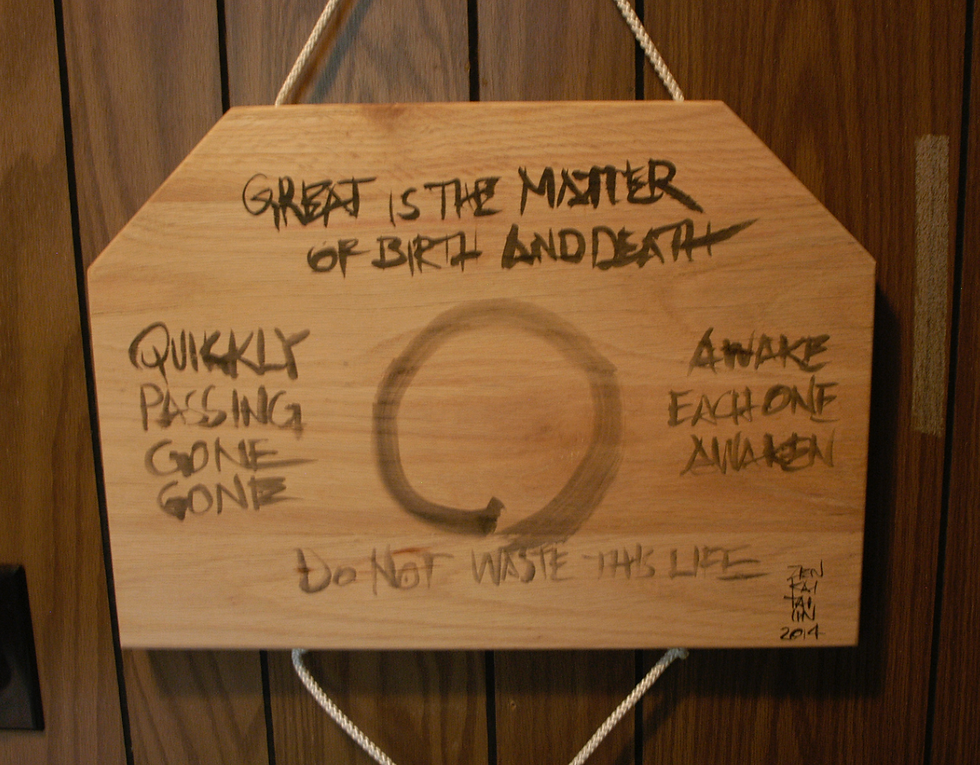
As practitioners we understand that words are symbols and connote approximations of what we wish to communicate. In Christianity…”In the beginning was the Word, and the Word was with God, and the Word was God. (John 1:1).” Here everything was One. Joseph Campbell suggests there are two types of God, the one outside the Universe, noted above) and the one within the universe in service to the unknown.
“Who verily knows and who can here declare it, whence it was born and whence comes this creation? The Gods are later than this world’s production. Who knows then whence it first came into being? He, the first origin of this creation, whether he formed it all or did not form it, Whose eye controls this world in highest heaven, he verily knows it, or perhaps he knows not.” Rig Veda 10.129.6-7 https://www.bbc.co.uk/bitesize/guides/zmtj2nb/revision/7#:~:text=Hindus%20believe%20that%20there%20are,how%20the%20world%20was%20created.
Generally speaking, Buddhism is a religion that does not include the belief in a monotheistic creator deity.[1][2][3] As such, it has often been described as either (non-materialistic) atheism or as nontheism, though these descriptions have been challenged by other scholars, since some forms of Buddhism do posit different kinds of transcendent, unborn, and unconditioned ultimate realities (e.g., Buddha-nature).[4]https://docs.google.com/document/d/1VYg5OFv4aR0ZPk5cFXhkkgF1Ojrxbj3IgsMAwnDXozE/edit
What distinguished Chan were its novel use of language, its development of new narrative forms, and its valorization of the direct and embodied realization of Buddhist awakening. In contrast with the epistemic, hermeneutical and metaphysical concerns that shaped other schools of Chinese Buddhism, Chan’s defining concerns were experiential and relational—concerns that fit most comfortably, perhaps, within the horizons of philosophical anthropology. Appreciating the philosophical dimensions of Chan thus requires some familiarity with Buddhist thought and practice, and the dynamics of their infusion into Chinese culture.
Generally speaking, Zen cherishes simplicity and straightforwardness in grasping reality and acting on it “here and now,” for it believes that a thing-event that is immediately presencing before one’s eyes or under one’s foot is no other than an expression of suchness. In other words the thing-event is disclosing its primordial mode of being such that it is as it is. It also understands a specificity of the thing-event to be a recapitulation of the whole; parts and the whole are to be lived in an inseparable relationship through an exercise of nondiscriminatory wisdom, without prioritizing the visible over the invisible, the explicit over the implicit, or vice versa. https://plato.stanford.edu/entries/japanese-zen/
Jewish beliefs about the origin of the universe God is the creator and source of all life. This teaching comes from the book of Genesis, which is the first book of the Torah (Jewish written law). Most Orthodox Jews accept the Genesis accounts of creation as the literal word of God, as was revealed to Moses on Mt Sinai. They celebrate the creation of the world weekly by observing the Sabbath and they celebrate creation through the festival of Rosh Hashanah.
The definitions above have evolved and may have varied in different periods, at the same time each of the philosophies or religions have sects within that suggests different approaches to the Words used. All religions change through translation. Translational occurs each generation because of language, technology and migration.. We might implore a simple sliding scale of change: orthodox–reform-radical to suggest variations of ideology, theology and pedagogy. I am interested in the cultural variations brought to bear on beliefs that are significant. I often use the example of Icelanders converting to Christianity in 1000 if they could keep two customs, eating horse and leaving the elderly out in snow in winter to die.
Today one of the more insightful books on the current Zen America is by our Abbot Taiun Michael Elliston-roshi: The Original Frontier. It is helpful to contrast this book with an earlier work by James Ishmeal Ford- roshi: Zen Master Who, written some sixteen years earlier in 2006. That is, public awareness and growth in Zen events, books and videos have increased to the point we can ask about the impact of America on Zen. https://storder.org/the-original-frontier-a-serious-seekers-guide-to-zen/
Tuesday night July 19, 2023 we talk about the 2600 year sweep of Buddhism in the world. Specifically looking at the cultural conditions within which Buddhism, Chan, Japanese and "American Zen" evolved.
108 Bows
Sangaku

Comments